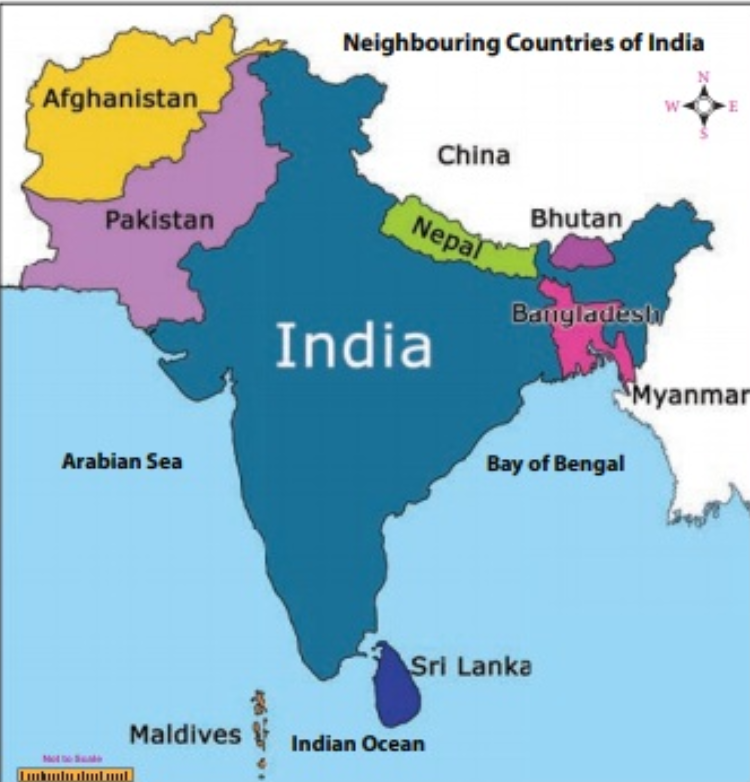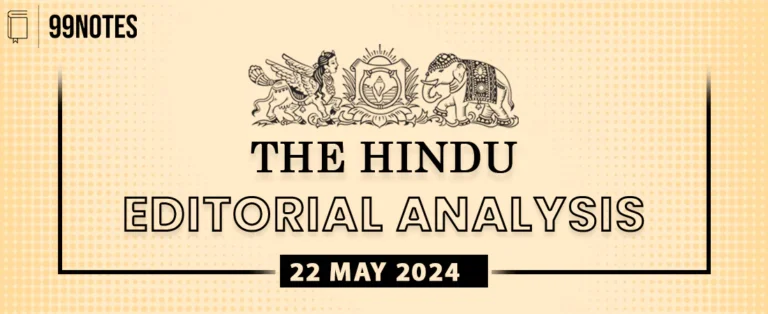12 August 2024 : Indian Express Editorial Analysis
1. Three neighbourhood questions
(Source: Indian Express; Section: The Editorial Page; Page: 10)
| Topic: GS2– International Relations – India and its neighbourhood |
| Context: |
|

Setbacks in India’s Neighborhood
- In less than three years, India’s foreign and security interests have faced significant setbacks in its immediate neighborhood, signaling potential flaws in its foreign policy.
- The resignation of Bangladesh’s Prime Minister Sheikh Hasina on August 5 amidst widespread protests, the election of Mohamed Muizzu as President of the Maldives on November 17, 2023, who is inclined towards China, and the fall of Afghanistan to the Taliban on August 15, 2021, despite India’s significant diplomatic investments, all represent serious challenges to India’s strategic interests.
- These events raise critical questions about whether these setbacks were due to misjudgments by those in charge of the country’s foreign and security policies, or whether they stem from deeper structural issues within India’s policy-making apparatus.
Need for Introspection and Dialogue
- The current situation calls for serious introspection by India’s political and security classes.
- Avoiding political point-scoring and engaging in a constructive dialogue between the government and the opposition is crucial, as seen in the all-party meeting on August 6 to discuss developments in Bangladesh.
- The cooperative response from opposition leaders suggests a recognition of the gravity of the security challenges facing the nation.
- Moving forward, this government-opposition dialogue should continue, extending to a critical evaluation of the policy-making structures that influence India’s external interests.
Roles of Key Institutions in Foreign Policy
- The Ministry of External Affairs (MEA), primarily managed by the Indian Foreign Service (IFS), is responsible for safeguarding India’s external interests.
- Diplomats in neighboring countries are selected for their expertise and understanding of regional and global affairs, providing the government with vital insights into the political, social, and economic dynamics of these countries.
- Additionally, India’s external intelligence service, established in 1968, plays a crucial role in uncovering hidden factors that could impact national interests, particularly in the neighborhood.
- However, the effectiveness of these institutions depends on their ability to collaborate and avoid encroaching on each other’s mandates.
Evolution of India’s National Security Structure
- The evolution of India’s national security structure, particularly after its 1998 nuclear tests, has been significant.
- The creation of the National Security Council (NSC), the Strategic Policy Group, and the post of National Security Advisor (NSA) were essential steps in addressing new and growing challenges, such as changing global power dynamics and technological advancements in cyber and space domains.
- These developments necessitated a more coordinated approach to defense and security, leading to the establishment of the National Security Council Secretariat (NSCS).
- However, despite the growing importance of the NSA and the NSCS, “turf” issues between different entities continue to pose challenges to effective coordination.
The Challenge of Surprise in Foreign Policy
- The critical question arising from the recent foreign policy failures in Afghanistan, Maldives, and Bangladesh is why the Indian system was caught off guard by the rapid changes in these countries.
- Despite the extensive security structures in place, including the NSA and NSCS, these events unfolded with surprising speed, suggesting potential lapses in judgment or coordination.
- Whether these failures were due to internal “turf” conflicts or a series of misjudgments by key decision-makers remains a pressing concern that requires thorough examination.
- Addressing these issues is essential to ensuring that India’s foreign and security policies are better prepared for future challenges in its neighborhood.
| Practice Question: Examine the recent setbacks in India’s foreign and security interests in its immediate neighborhood, focusing on Bangladesh, the Maldives, and Afghanistan. How can India improve its strategic preparedness in dealing with such challenges in the future? (250 words/15 m) |



